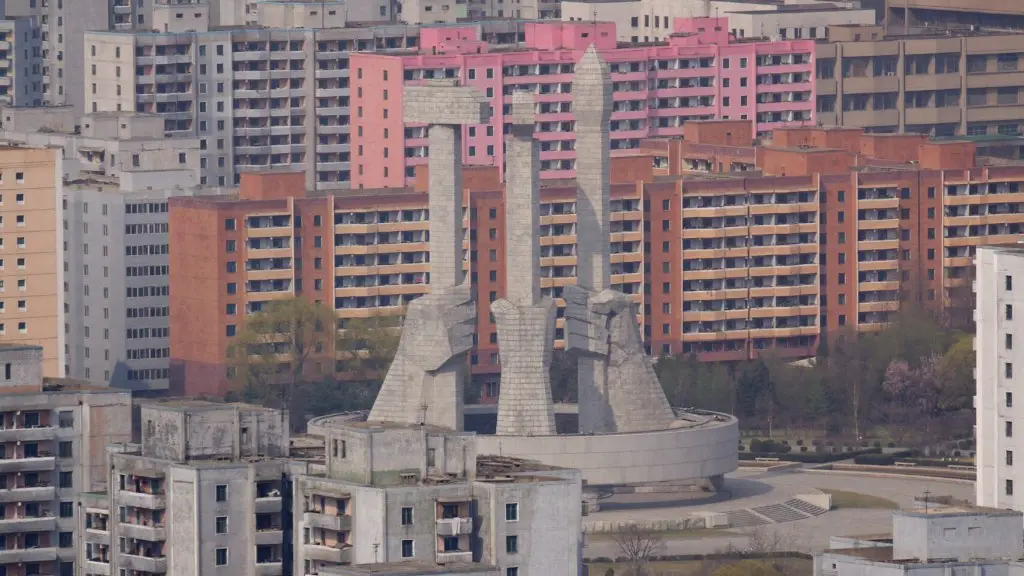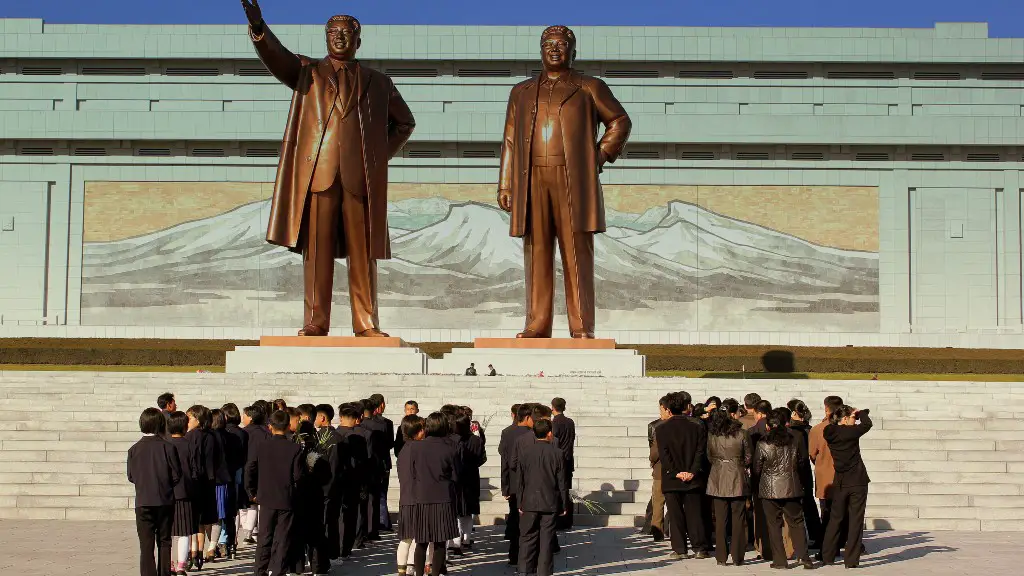The problem with North Korea has been a long-term challenge for the world for many years. Through its actions and policies, the North Korean government has made it clear that it does not consider itself bound by international laws, standards, and norms. It has violated human rights, posed a threat to its immediate neighbours, and continued to carry out nuclear weapons tests. It has become increasingly difficult for the international community to deter Pyongyang from its hostile and threatening behaviour.
The root of the problem between North Korea and the wider world is the state’s determination to develop nuclear weapons against a global consensus on how to manage nuclear arms. This is compounded by the complex layering of domestic and international politics in the Korean peninsula. Pyongyang’s hostility towards its southern neighbour, with whom it is technically still at war, has further exacerbated tensions with the international community. The human cost of authoritarian rule and its continuation of provocations has been felt around the world.
The historical context of the issue is important to understand. After the end of World War II, the Korean peninsula was divided into two halves, with a Soviet-backed communist state in the north and a United Nations-recognised democratic state in the south. Since then, North Korea has become increasingly isolated, removing itself from global influence and direction, and developing a highly secretive and militaristic regime. Its nuclear weapons tests and its pursuit of missile technology have further aggravated international concern.
The immediate risks of North Korea’s behaviour are clear. Its nuclear weapons and missile technology capabilities threaten global peace and security. Its human rights record is one of the worst in the world and its use of forced labour has drawn condemnation from the international community. Its ballistic missiles present a potential threat to South Korea and western nations such as Japan, potentially destabilising the region.
The security concerns posed by North Korea are compounded by the fact that it is one of the most heavily sanctioned states in the world. Through UN and other measures, Pyongyang has been limited in the amount of money it can receive in foreign aid, and its activities have been severely restricted. The impact of such measures on ordinary citizens is unknown, but is likely to be significant, particularly in terms of basic services and access to resources.
The long-term implications of the situation are equally grave. As long as North Korea remains isolated, its weapons and missile programmes will continue to develop. The international community needs to work together to find a resolution that achieves both security and humanitarian objectives. The challenge is to ensure that North Korea is held responsible for its actions and delivers real improvements in the lives of its citizens.
Engagement
One potential solution is for the international community to engage more fully with North Korea in an effort to bring it back into the fold. Engagement would not only allow Pyongyang the opportunity to demonstrate its commitments to the international community, but it could also create a platform through which it can be held accountable for its actions. For example, diplomatic talks could provide the opportunity to improve human rights in North Korea, and strengthen links between the North and the South. It could also facilitate the exchange of information and technology that could help North Korea modernise and develop its economy.
Furthermore, it could open the door for North Korea to gain more access to the outside world, allowing more exchanges and collaborations between it and other states. This could, in turn, create a more stable environment for the region, reducing the risks of escalation and confrontation. Finally, it could open up discussion and dialogue on issues of mutual concern and become an important first step in finding a permanent solution to the problem of North Korea.
Military Means
At the same time, the international community also needs to be aware that military means may ultimately be necessary to bring the situation back under control. The continued risk of escalation and confrontation must be kept in check, and the risk of proliferation of weapons of mass destruction needs to be addressed. In this regard, a calculated use of economic and diplomatic sanctions, as well as military force, can be utilized to achieve a lasting peace on the Korean peninsula.
The use of military force, however, needs to be carefully considered, as the consequences can be grave. If not properly assessed and limited, military action can result in widespread destruction for the people of North Korea, and potentially lead to wider regional instability. It is also possible that a prolonged conflict in the Korean peninsula could lead to conflicts between China and the United States, a situation that would be catastrophic for the entire world.
Sanctions
In addition to military means, economic and diplomatic sanctions are essential tools for managing the North Korean problem. The current sanctions imposed on North Korea are aimed at limiting its ability to acquire the funds and resources necessary to further develop its nuclear and missile technology programmes. This is an effective lever to use, as Pyongyang is heavily dependent on foreign trade and resources. As such, the sanctions have had a significant impact on the North Korean economy, and have forced the administration to scale back its ambitions to some degree.
However, the effectiveness of economic and diplomatic sanctions should not be overstated. It is important to note that, in order for sanctions to be successful, the wider international community needs to remain united in its focus and resolve. As long as one or two countries continue to provide financial, technological, or other types of support to North Korea, the effectiveness of any sanctions regime will be severely weakened.
Diplomatic Process
The diplomatic process is an important part of finding a lasting, peaceful solution to the North Korean problem. There have been numerous attempts to engage North Korea over the years, and these should be vigorously pursued. However, the success of the diplomatic process depends on two things: the willingness of the international community to unanimously agree on the objectives of their negotiation efforts; and the trustworthiness of North Korea to adhere to any agreements that it comes to.
Ultimately, what is needed is a broader, regional diplomatic framework that includes all the countries in the region, such as China, Japan, and South Korea, as well as the United States and other western powers. This could provide a platform for meaningful dialogue and dispute resolution, as well as provide a level of assurance that the North Korean government is actually interested in seeking a peaceful and negotiated settlement.
International Approach
The international community needs to take an integrated approach to the North Korean problem. This should involve a combination of diplomatic, financial, military, and economic measures in order to address the security and humanitarian issues posed by North Korea. In addition to addressing the immediate concerns, this approach should include measures to address the underlying factors contributing to the North Korean crisis – such as poverty, isolation, and authoritarian rule – in order to ensure that a lasting solution is found.
The international community also needs to remain united in their stance on the North Korean issue. It is only through a collaborative and concerted effort that any meaningful resolution can be achieved. This means that all the countries involved must be willing to commit resources and make real compromises. However, this is not an easy task, as there are deep ideological differences between the various nations involved.
Conclusion
The problem with North Korea is a complex and challenging one that requires a multifaceted approach to resolve. Ultimately, the solution must be one that tackles both the security and humanitarian issues. It needs to include a combination of diplomatic, financial, military, and economic measures, along with international support and cooperation. The underlying causes of the North Korean crisis must also be addressed, in order to ensure that a lasting solution can be found. However, as long as North Korea remains isolated and unwilling to negotiate, it will be difficult to find a peaceful resolution to the problem.




